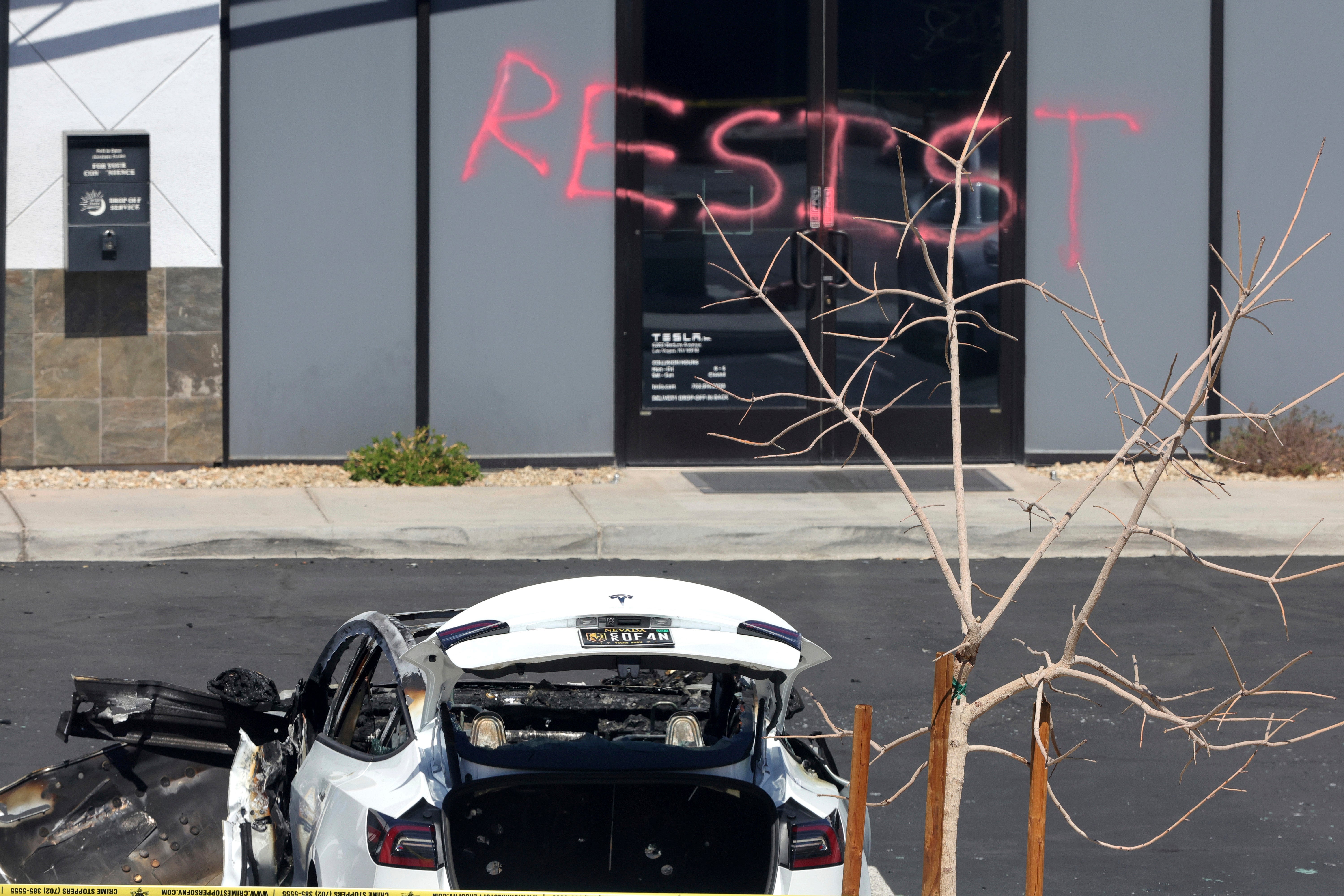
| Published March 27, 2025
Former U.S. President Donald Trump has alleged that liberal billionaires are funding coordinateddonald trump attacks on Tesla, the electric vehicle giant led by Elon Musk. Trump claims that these attacks are politically motivated, driven by efforts to undermine Musk due to his influence and perceived alignment with more conservative or free-speech-focused ideals, especially following Musk’s acquisition of Twitter and his critiques of mainstream media and government regulation.
The alleged attacks include criticism of Tesla’s environmental policies, labor practices, and government subsidies. Critics argue that Tesla’s practices don’t align with broader progressive values despite the company’s role in advancing green energy. Trump asserts that these criticisms are amplified by well-funded interest groups and media outlets with ties to wealthy liberal figures.

In recent months attacks on Tesla vehicles, showrooms and factories have grown across the U.S. In an interview Tuesday Donald Trump said ‘billionaires on the left’ are partly to blame (Las Vegas Sun)
This accusation fits into Trump’s broader narrative of culture wars, where he frequently portrays conservative figures and businesses as targets of what he calls left-wing bias and cancel culture. He praises Musk’s entrepreneurial success and positions Tesla as a symbol of American innovation under siege by partisan interests. Meanwhile, Musk himself has also responded to criticism in the past, accusing some activist groups and media outlets of unfairly targeting him and his companies.
This conflict reflects broader tensions in U.S. politics, where business leaders like Musk, who were once darlings of the left due to their environmental contributions, have found themselves at odds with certain liberal factions over free speech, political influence, and perceived allegiances. The issue raises larger questions about the intersection of politics, business, and media influence in shaping public narratives.
IMPLICATIONS
The implications of this situation are multi-layered, touching on political, economic, and cultural dynamics. Here are several key implications:
1. Deepening Political Polarization
The conflict between Trump, Elon Musk, liberal critics, and Tesla reflects and may further exacerbate the political divide in the U.S.
Musk, who was once viewed as a champion of green energy and innovation, is increasingly associated with conservative or libertarian ideals, leading to shifting alliances and more partisan divides around once non-partisan topics like electric vehicles (EVs).
2. Economic and Market Impacts
Attacks on Tesla could affect the company’s stock price, brand image, and consumer trust, especially if progressive groups intensify calls for boycotts or highlight labor and environmental issues.
Conservative consumers may rally around Musk and Tesla, seeing them as symbols of free-market success, which could reshape Tesla’s core customer base.
3. Reassessment of Corporate Influence and Image
The situation underscores how companies like Tesla and figures like Musk are no longer evaluated solely by their products but also by their perceived political stances.
Other CEOs may face pressure to declare or clarify their political affiliations, with growing scrutiny over corporate alignment with political and cultural ideologies.
4. Broader Free Speech Debate
This narrative also plays into the broader debate on free speech, censorship, and media bias. Musk’s actions on platforms like Twitter have intensified discussions about online freedom, moderation, and bias, which could lead to new regulations or changes in how social media platforms operate.
5. Impact on Clean Energy Transition
Tesla, once the poster child of the clean energy movement, may find itself increasingly disconnected from progressive environmental allies, which could weaken public and political support for EV subsidies and clean energy policies.
Conversely, conservatives may begin embracing EVs and Tesla more if they see Musk as an ally, which could reshape the clean energy landscape.
6. Influence on the 2024 U.S. Elections and Beyond
Trump’s support for Musk and framing Tesla as a target of liberal elites may become part of his 2024 campaign messaging, further politicizing issues like climate change, tech regulation, and corporate accountability.
Musk’s growing influence in political discourse could also lead to more direct involvement in political debates or policies.
Tesla protests—including instances of arson and vandalism—have taken place nationwide. (Photo by
OVERALL TAKEAWAY
The tensions surrounding Tesla, Elon Musk, and Trump’s accusations against liberal billionaires highlight the increasing politicization of business, technology, and free speech. What began as debates about environmental innovation and corporate practices has evolved into a broader cultural and political battleground.
This shift reflects deepening divisions in U.S. society, where economic players like Tesla and influential figures like Musk are evaluated not just by their products but by their perceived political leanings. The controversy could reshape consumer loyalty, political messaging, and public trust, while also contributing to the broader debate over media influence, corporate responsibility, and the role of billionaires in shaping political discourse.



Be the first to comment